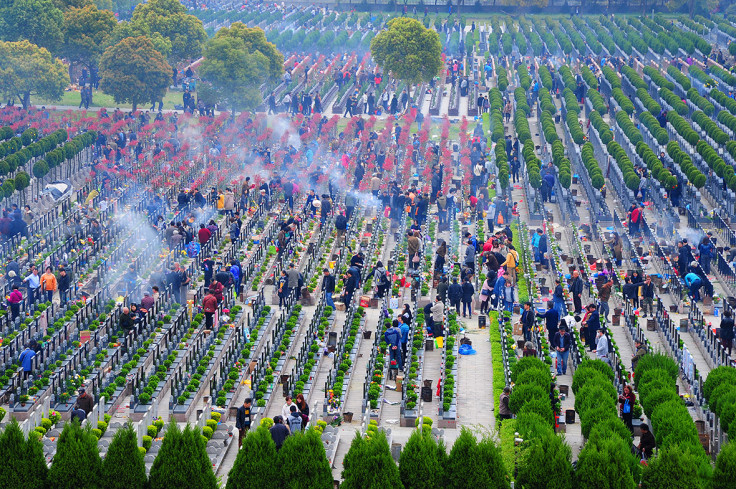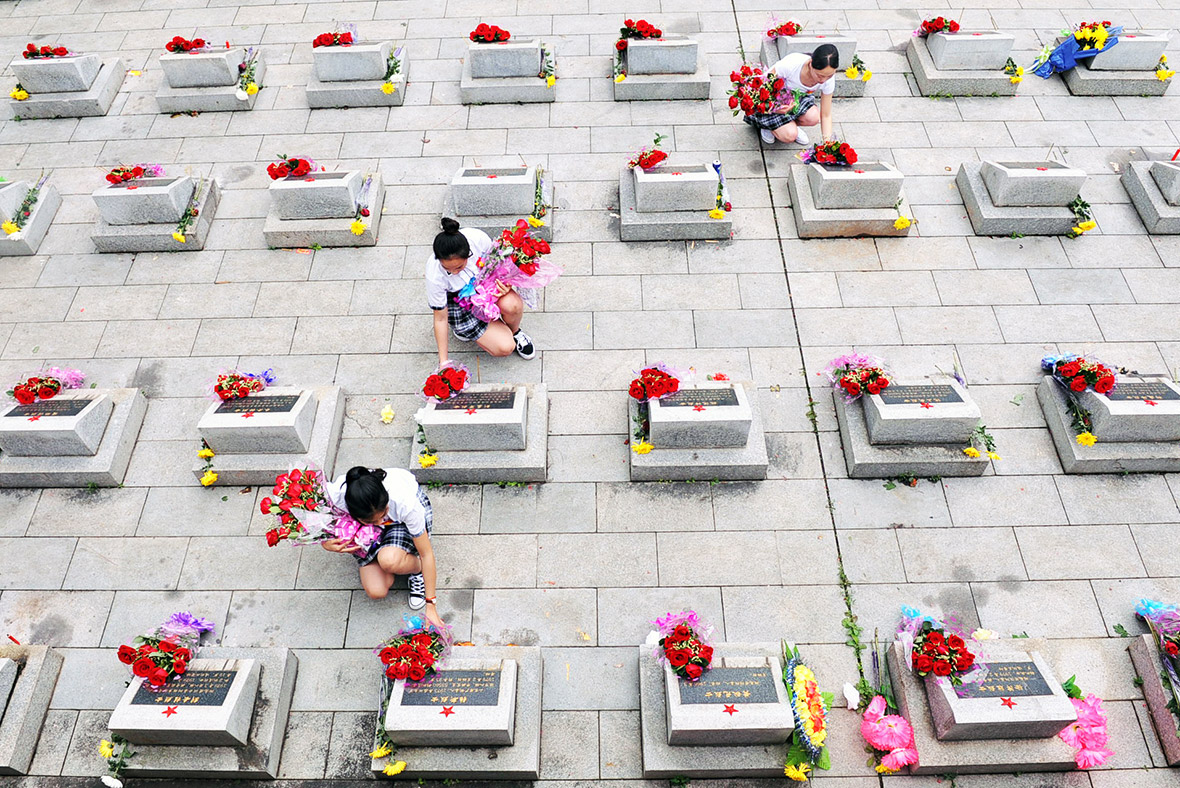Tomb-Sweeping Day in pictures: Chinese people give fake money, food and wine to ancestors during Qingming Festival
People burn incense, fake money and paper models of houses, cars and other goods in the belief their ancestors will be able to enjoy them in the afterlife.
People in China and across Asia have been visiting their ancestors' graves and leaving them offerings of food, alcohol and fake paper money. The Qingming Festival, also known as Tomb Sweeping Day, is observed in ethnic Chinese communities all over the world on the 15th day after the spring equinox.

The festival is marked with solemn ceremonies to honour the ancestors. People often leave fruit, whole chickens and other food for their dead relatives. They also burn incense, fake money and paper models of houses, cars and other goods in the belief their ancestors will be able to enjoy them in the afterlife. Tombs are swept and food, tea, wine and other gifts offered to the departed spirit and to the gods. Many pet-owners also pay respects to their deceased animals by cleaning their tombs and gravestones.












Over 1,000 tonnes of paper products are burnt in memory of the deceased every year, but authorities are cracking down on the practice because of the fire risk. People are beginning to abandon the traditional money-burning ritual for more eco-friendly ways to remember their loved ones, such as leaving flowers.
© Copyright IBTimes 2024. All rights reserved.






